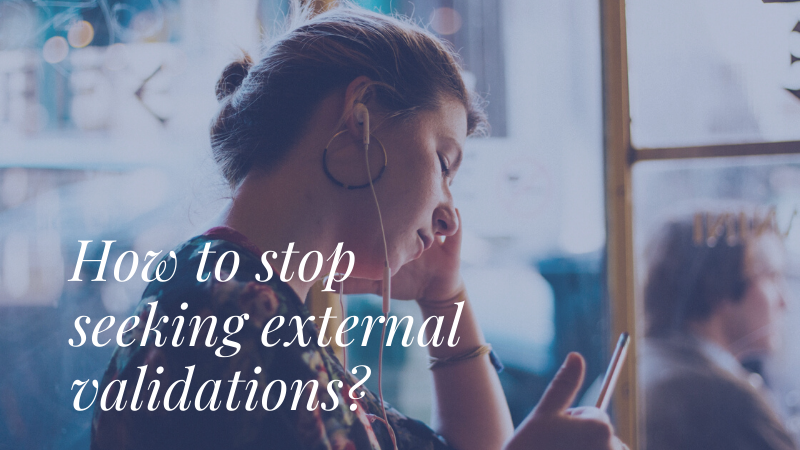External validations
Many of us are seeking external validations. We think we need it in order to feel better about ourselves or to be happy in our lives. But is it really true? Do you really need someone approving you as a person so you could be happier?
When someone validates us and approves what we are doing or who we are, it feels good… for a short time, but it feels good. It boosts our energy and lifts our moods up. Although it is only ego-based validations. Our ego seeks validations, so we can feel better about ourselves, and this isn’t necessarily a bad thing. However, external validations which are the ego feed will never last for a long time. And we will always feel that hunger to be approved.
When someone gives us the external validation we are getting a buzz. We feel good about ourselves. But when the euphoria passes away and when we no longer get the validations we then have the tendency to fall into the spiral of self-criticism and self-doubt. We question ourselves in all directions. We quickly move from feeling inflated to feeling defeated when we rely on external validation to feel good about ourselves. It not only puts our self-worth in the hands of others, but it takes our own source of empowerment and controls away from us.
Breaking the Cycle
An effective first step in breaking the need for validation from others starts with understanding the type of validation you are seeking: Do you want to be acknowledged through social media? Are you interested in hearing that you are one in the group, the best one at work, the ideal spouse, or perhaps the greatest parent?
Learning to recognize when you are seeking validation from external sources is the first step. By acknowledging this behavior, people can choose a more effective option, breaking the cycle and learning to look internally for validation.
Ways to start looking internally
There are ways to combat the destructive nature of relying on external validation, and the first step is recognizing it! Once we acknowledge and recognize the patterns that may come from external validation, we can then move towards boosting our own validation, which we can learn to trust and rely on more often. Here are a few ways to boost internal validation, which is the most important voice to be listening to and nourishing:
- Think about what you want to hear from others, and say it to yourself. What comment are you waiting for? What do you want others to say or think about you? What outcome might you be wishing for? Instead of waiting for someone else to say it to you, say it to yourself.
- Ask yourself what you need. Is it a connection? Is it to be heard and seen? Is it to share an experience with someone? Is it to feel good enough? Once you identify what you need in a given moment, try brainstorming ways to get that need met in a fulfilling and self-compassionate way, rather than through external validation alone.
- Pay attention to your reactions. When you notice yourself doubting something you shared, or wondering if you are good enough, or feeling unworthy, name it. By putting a name to your experience, you allow yourself to separate from it and see it with more clear eyes, which will support you in working through it using some of the tools we’ve talked about before (mindfulness, self-compassion).
- Take a social media break. Getting off social media is a great place to start. This eliminates the comparison to others or the anxiety and stress about how your picture, post, or comment is being seen and received by others.
- Be mindful. Look carefully at what you are doing. Look for improvements and make a record of these either as a mental note or in a journal. These are self-validations that help you build up your acknowledgment of your own abilities, talents, and skills.
https://blogs.psychcentral.com/psychology-self/2017/08/validation-self-esteem/

